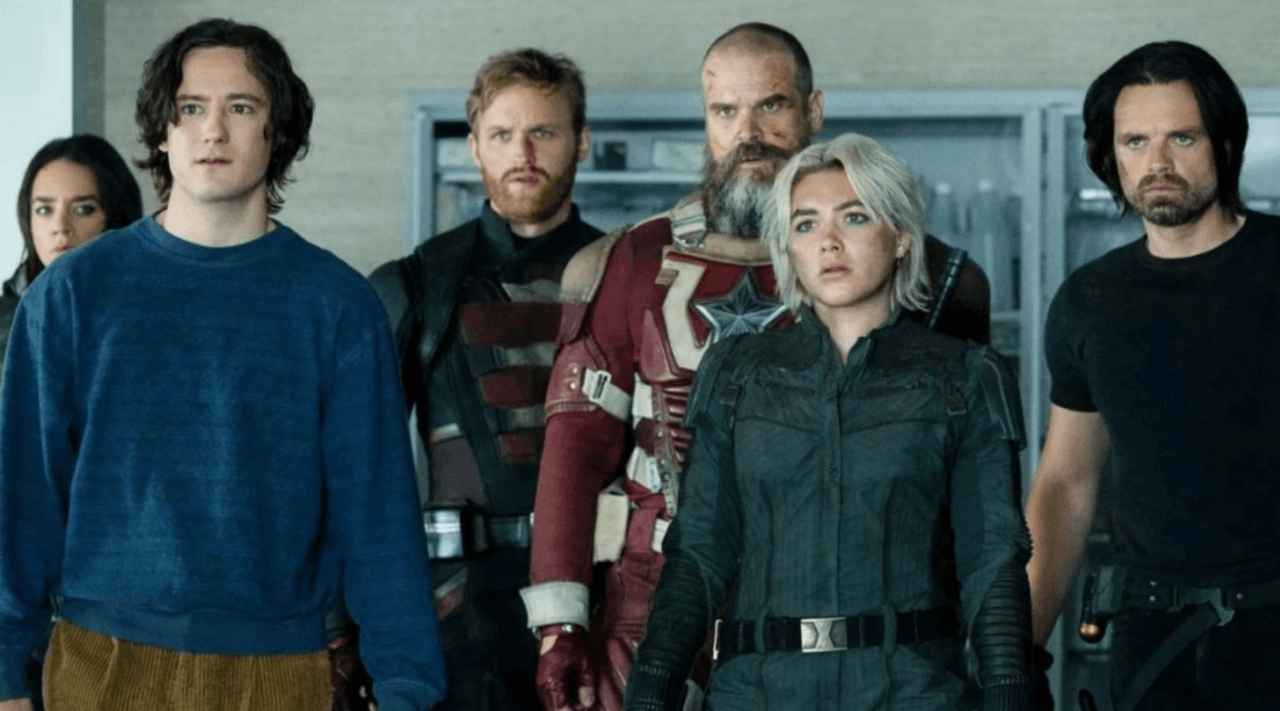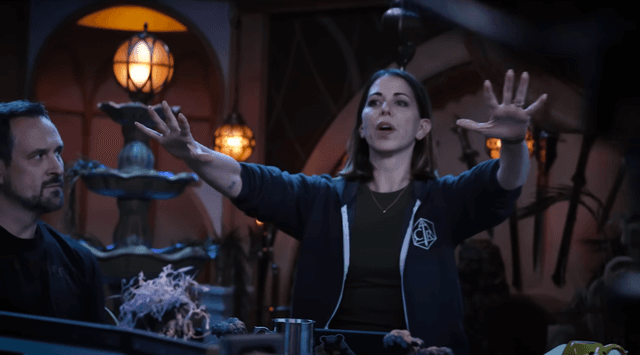If you click on a link and make a purchase we may receive a small commission. Read our editorial policy.
Marvel Studios' Thunderbolts* movie puts the final nail in the coffin for the Joss Whedon-era superhero film
Thunderbolts* has freed the MCU from the prison of Joss Whedon-esque dialogue dating back to 2012's The Avengers

Popverse's top stories
- "And my axe!" Lord of the Rings star John Rhys Davies says there's one world leader who deserves Gimli's iconic weapon
- Wonder Man is the Andor of Marvel Studios’ modern TV series on Disney+
- Absolute Batman happened because DC Comics writer Scott Snyder got bored reading about ‘superhero fatigue’
Thunderbolts* has a lot riding on it - the future of Hollywood's biggest franchise to be exact. As the 36th film in the Marvel Cinematic Universe, which began in 2008 with Iron Man, the franchise is at a critical moment. Can it return to its pre-Avengers: Endgame glory days without some of its biggest original stars? Are audiences still willing to put their butts into cinema seats for another explosive and snappy romp? If you asked Magneto to sum up what Marvel Studios must do to secure its future in the zeitgeist, he'd say this: evolve, or die.
And evolve, it has.
Thunderbolts isn't the New Avengers - it's the new

For the benefit of humanity at large, Thunderbolts* has taken us into the future: a world where superhero tentpole films no longer have to emulate the work of Joss Whedon. Sure, Buffy the Vampire Slayer is a great TV series, if you take out all the shots and scenes with Xander, but Whedon's later influence on the nascent Marvel Cinematic Universe created a repetitive formula that Marvel Studios tried to replicate again and again. Whedon's brand of annoying, quippy dialogue, and occasional baffling character moments (For example, Black Widow telling Bruce Banner in Avengers: Age of Ultron how she was sterilized against her will, and that he wasn't "the only monster on the team" because of it...?) painted the tone of the next decade of MCU releases in broad strokes after the success of The Avengers in 2012. A humorous beat would happen. A character would say something to the effect of, "Uh, so THAT happened," rinse and repeat.
For Thunderbolts*, Marvel Studios enlisted screenwriters Eric Pearson and Joanna Calo to pen the script. While Pearson has worked mostly with Marvel Studios in the past, Calo is perhaps best known as the co-showrunner for FX's hit series, The Bear. In case you need a refresher, The Bear is a dramedy that pushes its comedic and dramatic elements to the limits. One moment, you're belly-laughing as the ceiling of the restaurant caves in on Cousin Richie, the next minute you're clawing the arm of your couch from anxiety as the tensest Thanksgiving dinner in human history unfolds. Calo's writing on the 'Ice Chips' episode from season 3 where Sugar gives birth is nuanced, intimate, and above all, human. As you watch Sugar and her mother, Donna, try to work out the messiness of their daughter-mother relationship, you feel like you're witnessing actual human beings work through actual human emotions.
How Thunderbolts* speaks to the audience whereas Avengers speaks at the audience

This element of emotional realism is what makes the dialogue and story of Thunderbolts* dramatically different from the Whedon-esque entries in the MCU. One of the reasons why I hate Whedonspeak so much is that, at its core, it presents a jaded view of life. The constant need to perform self-awareness in order to look clever to the audience undercuts the emotional impact of a character's journey. It's a reflex ultimately built on ego, reminding us time and time again who the mastermind behind all of it is.
In contrast, Thunderbolts* is refreshing in its humor because the characters' misadventures speak to the audience's human experiences, rather than at them. Like on The Bear, characters in Thunderbolts* aren't afraid to wear their flaws on their sleeves. John Walker's single-mindedness, argumentative personality, and failures as a father recall Cousin Richie on The Bear. And in the case of both characters, we grow to love them despite their shortcomings. Red Guardian makes us laugh time and time again because of how badly he wants to be a hero. But it's laughter coming from a place of empathetic joy, as we already know that beneath that bravado is a depressed Soviet has-been who brushes his teeth with an index finger and a splash of dish soap. When we laugh, it's a breath of relief.
Instead of characters flinging word salad at each other, Pearson and Calo's story gives plenty of time for the Thunderbolts to talk about their feelings to each other. Without giving too much away, in one sequence, a character cathartically reveals that she can't remember a time when she didn't feel like she was missing something. Her mentor then fills in the gaps in her memory, telling her how she lit up the room wherever she went as a child. It brings tears to your eyes.
Meet the best-written female character in the MCU

Where Thunderbolts* cements its departure from Whedontimes is in Yelena Belova, who may be the best-written female character in the MCU. While Yelena and the rest of the Thunderbolts* would have fired a quip every time Lewis Pullman's Bob did something off-putting in the MCU of yore, the film punctuates Bob's erratic moments by cutting to Yelena looking concerned at him. Thanks to Florence Pugh's powerhouse performance, these unspoken moments reorient Thunderbolts*' sense of entertainment away from the spectacle of "wow, character said something funny" to "this young woman is having an emotional journey in response to this person she's met." With Yelena, less is more. And while Pugh nails her character's deadpan sense of humor, Pearson and Calo's script never overstays its welcome.
It's fitting that Thunderbolts* would be the film to propel the MCU into a new era. The film puts topics like depression, mental illness, addiction, and suicidal ideation at the center of its story, led by a spirit of empathy and sensitivity. As a viewer who saw a lot of himself in Bob and Yelena, I'd rather eat bricks for a year than see a story like Thunderbolts* told within a Whedon-inspired formula. It's just inappropriate. I think I can speak for all of us when I say that these past 5 years in particular have been uniquely traumatizing. And at this point in time, we deserve films like Thunderbolts* that offer a significantly more grown-up kind of humor - one that doesn't draw attention to the mind of its creator, but rather to the experiences that unite so many of us.
Consider this a meta post-credits scene for Marvel fans - the four key articles you need to read next to continue the thrills:
Follow Popverse for upcoming event coverage and news
Find out how we conduct our review by reading our review policy
Let Popverse be your tour guide through the wilderness of pop culture
Sign in and let us help you find your new favorite thing.
















Comments
Want to join the discussion? Please activate your account first.
Visit Reedpop ID if you need to resend the confirmation email.